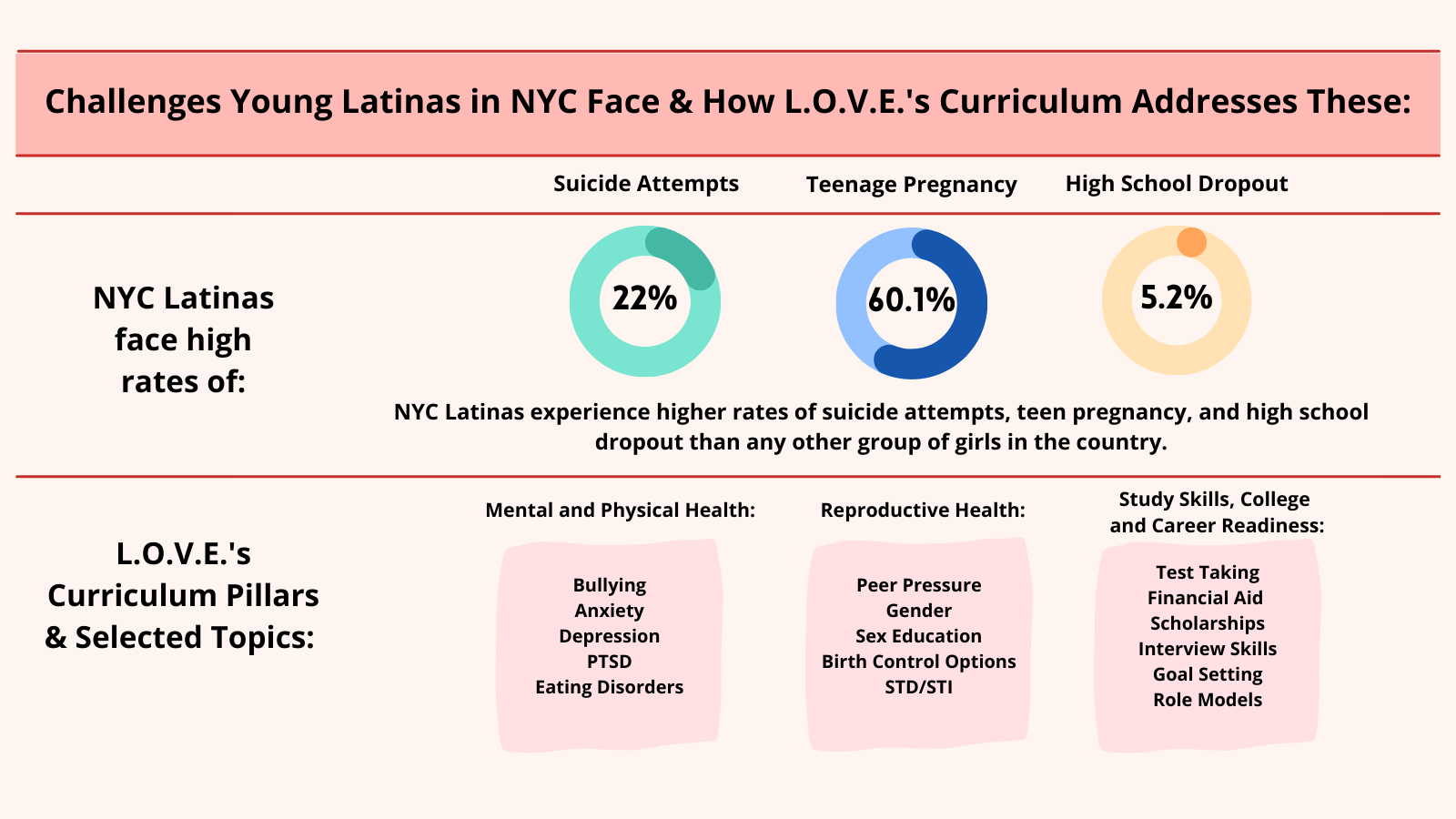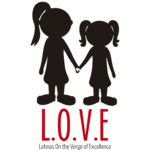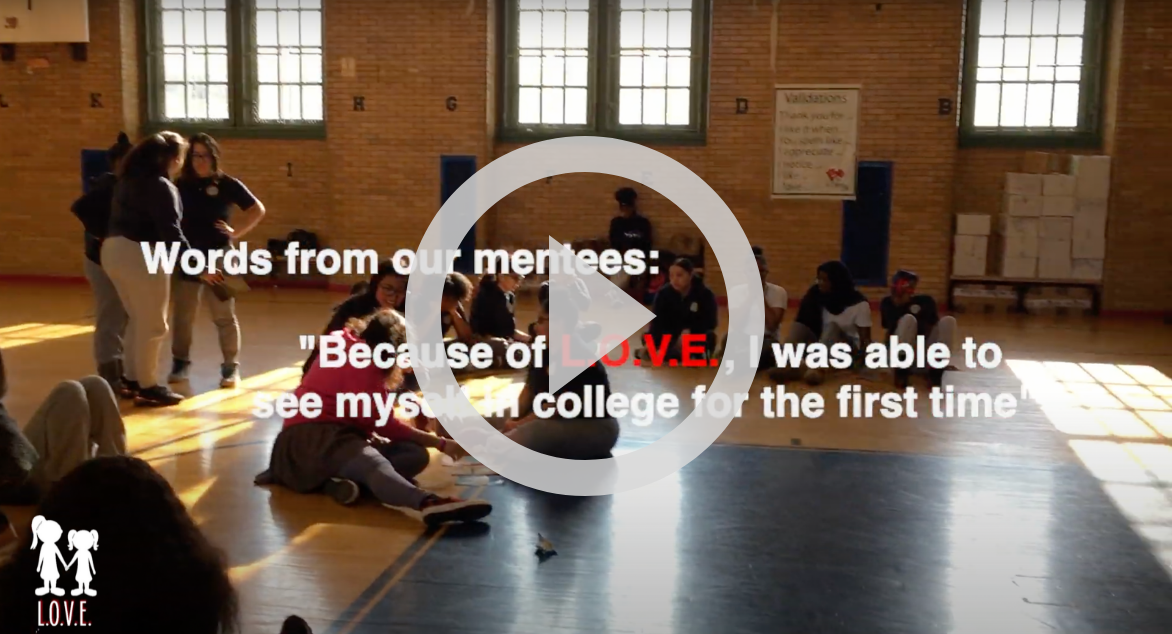About US
OUR MISSION
The Latinas On the Verge of Excellence (L.O.V.E.) Mentoring Program empowers young women to recognize their innate strengths and achieve personal and professional goals through mentorship and health education. Our focus includes mental, reproductive, and physical health, as well as college and career readiness.
OUR VISION
The Latinas On the Verge of Excellence - L.O.V.E Mentoring Program believes that women can do absolutely anything they set their minds to.
WHY NYC NEEDS L.O.V.E.
L.O.V.E.’s high-impact curriculum was developed based on twelve years of experience:

WHAT DOES L.O.V.E. DO?
MENTOR MODEL
The main difference between the L.O.V.E. Mentoring Program and other mentorship programs is our culturally- and linguistically-sensitive approach, rooted in role modeling that comes from individuals who understand the challenges, guidance, and support that the young women we serve need in order to thrive. Our mentors understand and relate to the mentees because they have gone through similar experiences. Our mentees can see themselves reflected in their mentors. Our role-model mentorship strategy, along with our commitment to provide education in areas important for young Latinas and other young women of diverse backgrounds to learn about such as mental health, reproductive health, and college and career readiness has proven to enhance student engagement and academic outcomes.
HEALTH-BASED CURRICULUM
During the academic year, mentees and mentors participate in weekly, hour-long sessions guided by a health-based curriculum that consists of four core components: mental health, reproductive health, college access, and career readiness. Through a series of structured mentoring and group activities that concentrate on personal empowerment, developing study skills, and college access, L.O.V.E. provides a space where young women can learn how to strive personally and academically through positive reinforcement, consistency and understanding.
PUBLIC SCHOOL PARTNERS
The L.O.V.E. Mentoring Program works in partnership with organizations, universities, and public schools whose mission is to enhance the well-being of young girls and Hispanic communities in NYC. L.O.V.E. continues to develop and cultivate strong relationships with schools’ networks including the Student Leadership Network and the Internationals Network for Public Schools within these last twelve years. These strong partnerships have allowed us to expand our programs and be able to serve female students in public schools throughout NYC. Additionally, our partnerships have allowed us to closely monitor the personal and academic development of students that have participated in the L.O.V.E. program.
Our IMPACT
Since its launch, L.O.V.E. has successfully supported young Latinas and young women in general to thrive and overcome challenges related to mental and reproductive health as well as low academic performance.
Over the past twelve years, 82.10% of our students have attended the program on a weekly basis. More than 50% of the students we have served have been part of the program for two years or more.
According to our most recent alumni survey:
Students state that attending the L.O.V.E. program during their high school years helped them increase self-confidence
Students who actively participate in the L.O.V.E. program develop an understanding of sexual health education
Native Spanish-speaking students report language skills acquisition based on their participation in the L.O.V.E. program
Students who complete the L.O.V.E. program graduate from high school and pursue higher education
Our growth
Throughout the past thirteen years, L.O.V.E. has served over 3,000 students with activity in 40 separate public schools across NYC.
L.O.V.E.’s goals are to:
- Continue to empower and encourage young Latinas and other female students to use their voices to make a difference within their schools, community, and personal lives
- Become a required health class in NYC middle and public high schools
- Triple the number of mentees we serve each academic year for the next two years
- Expand the L.O.V.E. program within communities that have a high percentage of Latino population including:
- Washington Heights
- South Bronx
- Bushwick
- Williamsburg
- Elmhurst
- Jackson Heights
- Corona

